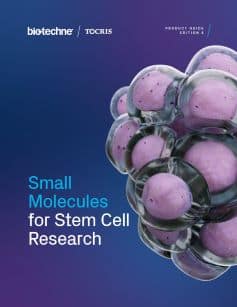Receptor Tyrosine Kinases (RTKs)
Receptor Tyrosine Kinases (RTK) are receptors that contains intrinsic tyrosine kinase activity. The simplest receptor tyrosine kinases (RTKs) have three domains: a ligand binding domain outside the cell, a single membrane-spanning domain, and a tyrosine kinase domain inside the cell. The ligands are usually diffusible peptides or small proteins produced elsewhere in the organism, and are typically growth factors, cytokines and hormones. In the absence of a ligand the receptor is inactive.
Receptor Tyrosine Kinase (RTK) Target Files
Ligand binding results in receptor dimerization with an adjacent receptor, causing the tyrosine kinase domain on the receptor to become active. The receptors can then phosphorylate each other on multiple tyrosine sites; they may then bind with one or more other proteins (called SH2 proteins) that specifically recognize the phosphorylated tyrosines. Some SH2 proteins are themselves enzymes, while others are adapter molecules that in turn attract and bind other enzymes. Often these enzymes are inactive until they join the receptor complex, because their substrates are found only in the membrane. The products of these enzymes may act on yet other molecules, thus continuing the signaling cascade, or they may be used in cell metabolism for growth or other responses.
Literature for Receptor Tyrosine Kinases (RTKs)
Tocris offers the following scientific literature for Receptor Tyrosine Kinases (RTKs) to showcase our products. We invite you to request* your copy today!
*Please note that Tocris will only send literature to established scientific business / institute addresses.
